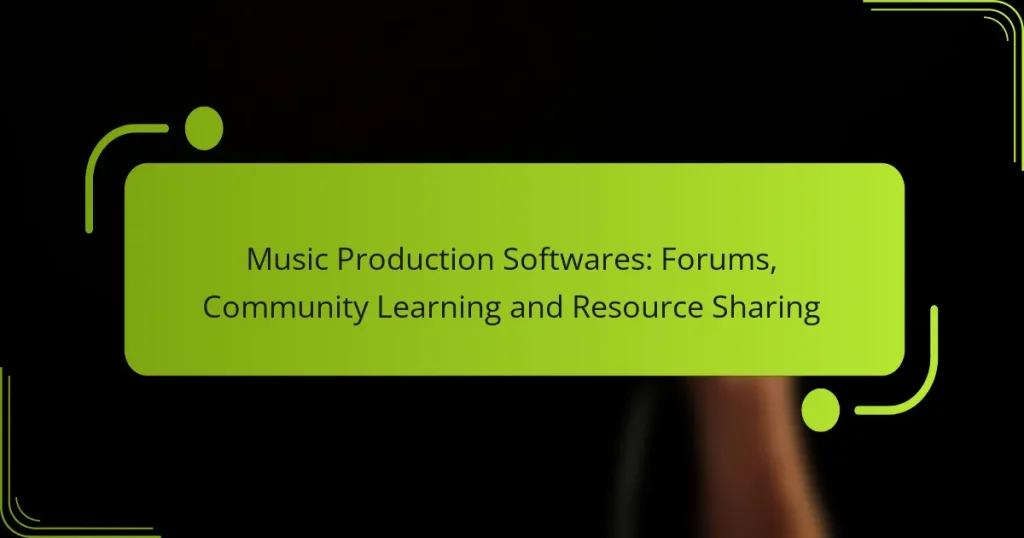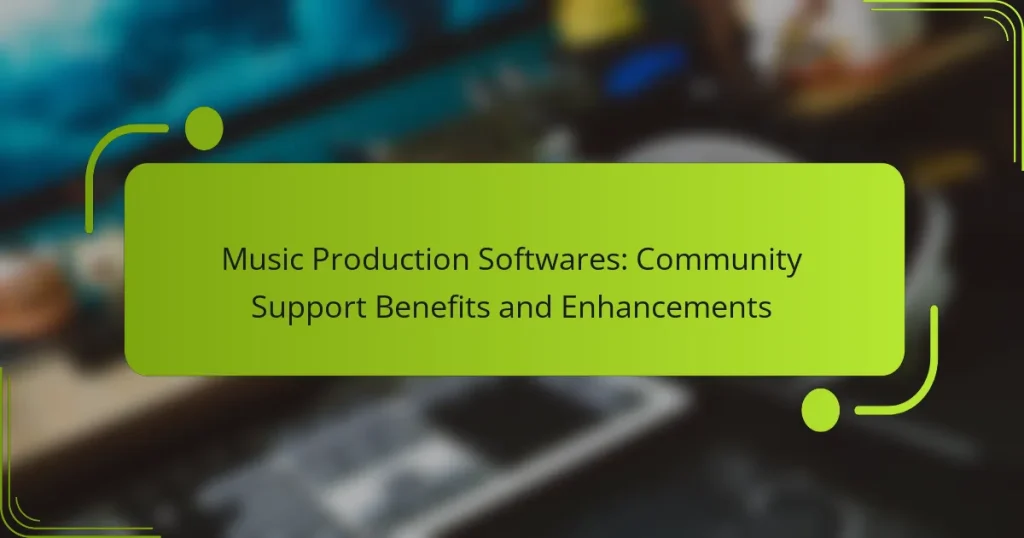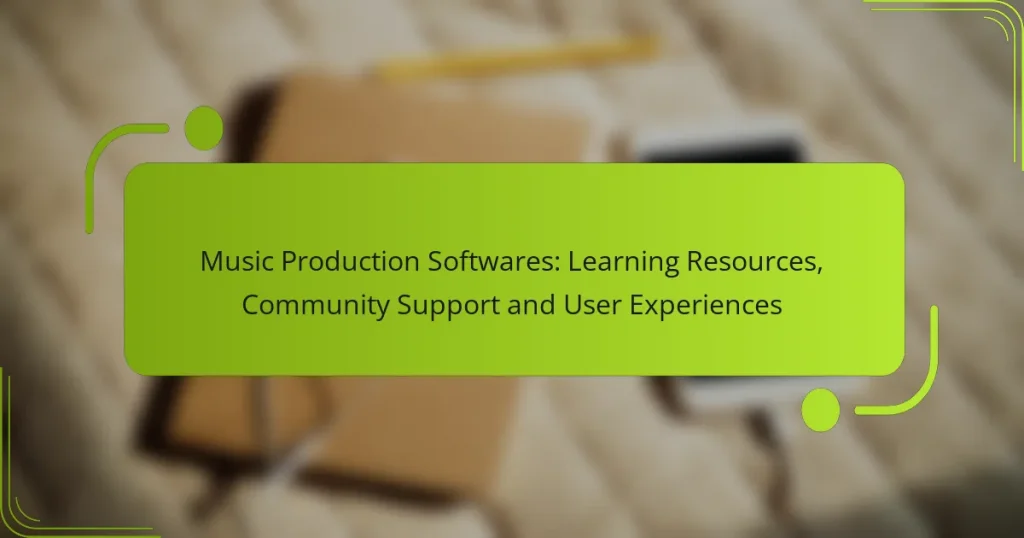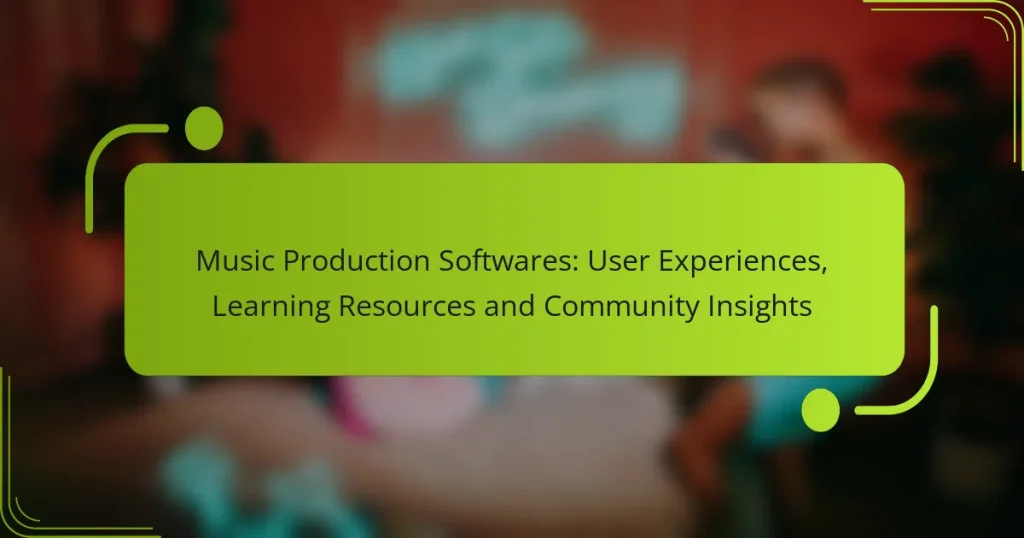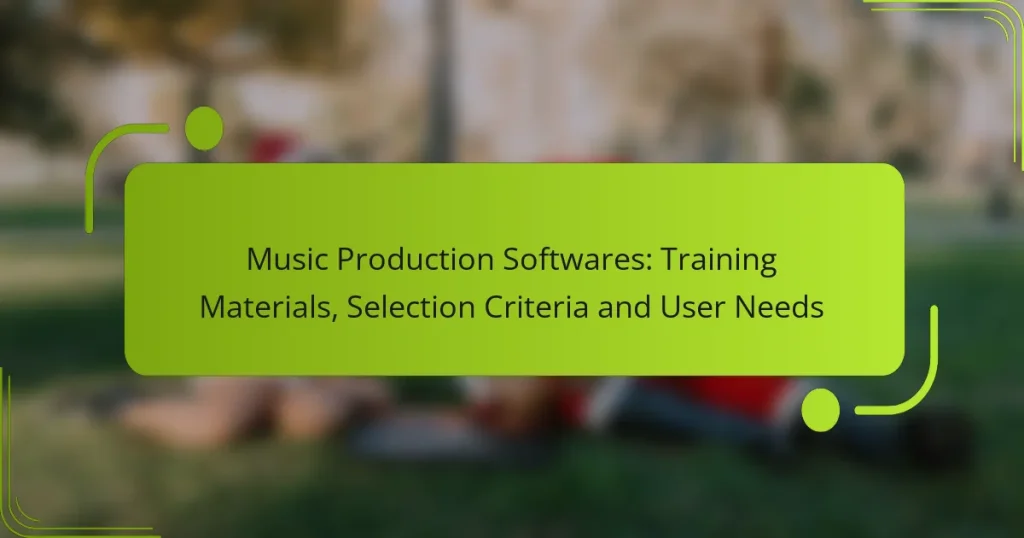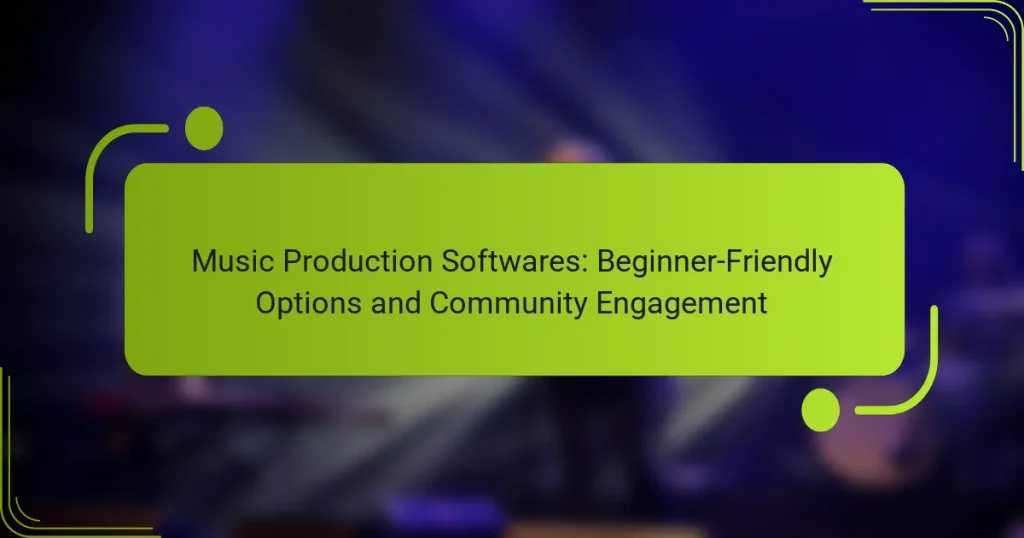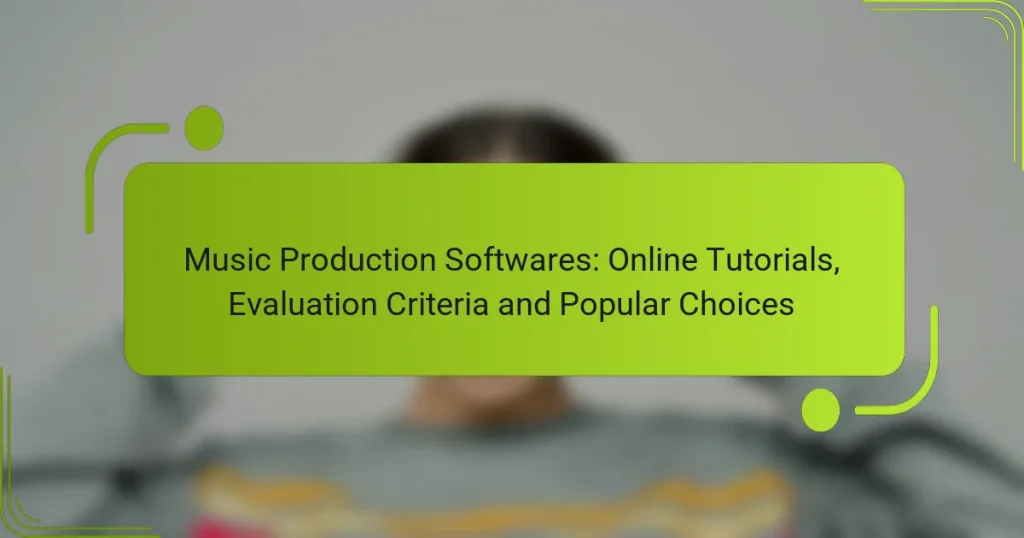Music production software is essential for creating and recording music, with options like Ableton Live, FL Studio, and Logic Pro X catering to diverse user needs and skill levels. To master these tools, engaging with structured learning resources such as online courses and video tutorials is crucial. Additionally, joining online communities can enhance your experience by providing support, advice, and opportunities for collaboration with fellow producers.
Music Production Softwares: Community Support Benefits and Enhancements
Music Production Softwares: Learning Resources, Community Support and User Experiences
Music Production Softwares: User Experiences, Learning Resources and Community Insights
Music Production Softwares: Training Materials, Selection Criteria and User Needs
Music Production Softwares: Beginner-Friendly Options and Community Engagement
Music Production Softwares: Online Tutorials, Evaluation Criteria and Popular Choices
What are the best music production software options?
The best music production software options vary based on user needs, skill levels, and specific features. Popular choices include Ableton Live, FL Studio, Logic Pro X, Pro Tools, and GarageBand, each offering unique strengths for different types of music production.
Ableton Live
Ableton Live is favored for its intuitive interface and powerful live performance capabilities. It allows users to create, edit, and arrange music in a flexible environment, making it suitable for both studio production and live shows.
Key features include session view for improvisation and arrangement view for detailed editing. It supports a wide range of plugins and has a strong community for tutorials and support, which can be beneficial for beginners.
FL Studio
FL Studio is known for its user-friendly interface and strong MIDI capabilities, making it a popular choice among electronic music producers. It offers a pattern-based workflow that allows for quick composition and arrangement.
With a variety of built-in instruments and effects, FL Studio is versatile for different genres. The software also provides lifetime free updates, ensuring users always have access to the latest features without additional costs.
Logic Pro X
Logic Pro X is a comprehensive digital audio workstation (DAW) exclusive to macOS, ideal for professional music production. It features a vast library of sounds, loops, and plugins, catering to a wide range of musical styles.
Its advanced audio editing capabilities and MIDI functionality make it a powerful tool for both recording and mixing. Logic Pro X also integrates seamlessly with other Apple products, enhancing the overall workflow for Mac users.
Pro Tools
Pro Tools is considered the industry standard for audio recording and post-production. It excels in handling large sessions and offers advanced editing and mixing features that professionals rely on.
While it has a steeper learning curve and higher cost, Pro Tools is essential for those working in studios or on film and television projects. It supports a wide range of hardware and plugins, making it highly adaptable for various production needs.
GarageBand
GarageBand is a beginner-friendly DAW available for macOS and iOS, perfect for those new to music production. It offers a simple interface with essential features for recording, editing, and mixing music.
While it may lack some advanced functionalities of professional software, GarageBand provides a solid foundation for learning music production. It includes a variety of virtual instruments and loops, allowing users to create music quickly and easily.
How can I learn music production effectively?
To learn music production effectively, focus on structured resources and practical experience. Combining online courses, video tutorials, and masterclasses can provide a comprehensive understanding of music production techniques and software.
Online courses on Udemy
Udemy offers a variety of music production courses that cater to different skill levels, from beginners to advanced producers. These courses typically include video lectures, quizzes, and downloadable resources, allowing for a flexible learning experience.
When selecting a course, look for those with high ratings and reviews, as well as updated content that reflects current industry practices. Courses often range from $10 to $200, depending on the depth and instructor’s expertise.
YouTube tutorials
YouTube is a rich resource for free music production tutorials, featuring everything from software walkthroughs to specific production techniques. Channels dedicated to music production can provide valuable insights and practical tips.
To maximize your learning, subscribe to reputable channels, create playlists of tutorials that interest you, and practice alongside the videos. Be cautious of misinformation; always cross-reference techniques with trusted sources.
Masterclasses from industry professionals
Masterclasses led by industry professionals offer an in-depth look at music production from experienced creators. These sessions often cover advanced techniques, creative processes, and insider tips that can elevate your skills.
Platforms like MasterClass or Skillshare provide access to these masterclasses, typically requiring a subscription or one-time fee. Engaging in these classes can be beneficial for networking and gaining unique perspectives on the music industry.
What communities support music producers?
Various online communities provide essential support for music producers, offering resources, advice, and networking opportunities. These platforms foster collaboration and knowledge sharing among both beginners and experienced producers.
Reddit’s r/WeAreTheMusicMakers
Reddit’s r/WeAreTheMusicMakers is a vibrant community where music producers share their experiences, tips, and projects. Members can ask questions, seek feedback, and participate in discussions about various aspects of music production.
This subreddit is particularly beneficial for newcomers, as it features a wealth of resources, including tutorials and guides. Engaging with the community can help producers gain insights into industry trends and best practices.
Gearslutz forums
The Gearslutz forums, now known as Gearspace, are a popular destination for music producers looking to discuss equipment, software, and techniques. The forums cover a wide range of topics, from gear reviews to production techniques, making it a valuable resource for both novice and professional producers.
Members often share their setups and experiences, providing practical advice on what gear works best for different styles of music. Participating in these discussions can help producers make informed decisions about their production tools.
SoundOnSound community
The SoundOnSound community is centered around the well-known music production magazine, offering forums where users can discuss articles, share tips, and ask questions. This platform is ideal for those looking to deepen their understanding of music technology and production techniques.
In addition to forums, SoundOnSound provides a wealth of articles and reviews that can help producers stay updated on the latest trends and tools in the industry. Engaging with this community can enhance a producer’s knowledge and skills significantly.
What are the prerequisites for music production?
To start music production, you need a foundational understanding of music theory and audio equipment. These prerequisites will help you create, record, and mix music effectively.
Basic music theory knowledge
A solid grasp of basic music theory is essential for music production. Understanding concepts such as scales, chords, and rhythm will enable you to compose music that is harmonious and engaging.
Familiarity with musical notation and the ability to read sheet music can also be beneficial. This knowledge allows you to communicate effectively with other musicians and understand the structure of the music you are producing.
Understanding of audio equipment
Knowledge of audio equipment is crucial for effective music production. This includes understanding microphones, audio interfaces, mixers, and studio monitors, as each piece plays a vital role in capturing and reproducing sound.
When selecting equipment, consider your budget and the type of music you want to produce. For beginners, investing in a decent audio interface and a quality microphone can significantly enhance your recordings without breaking the bank.
How do I choose the right music production software?
Choosing the right music production software involves assessing your specific needs and preferences. Consider factors such as your workflow, budget, and the features that matter most to you.
Assess your workflow needs
Begin by identifying how you intend to use the software. Are you focused on recording live instruments, producing electronic music, or mixing tracks? Different software excels in various areas, so understanding your workflow will help narrow down your options.
For instance, if you plan to collaborate with other musicians, look for software that offers robust sharing features. If you prefer a more hands-on approach, a digital audio workstation (DAW) with MIDI capabilities might be essential.
Consider your budget
Your budget plays a significant role in selecting music production software. Prices can range from free options to several hundred dollars for professional-grade tools. Determine how much you are willing to invest and explore software that fits within that range.
Many DAWs offer tiered pricing models, so you can start with a basic version and upgrade as your skills and needs grow. Be cautious of hidden costs, such as additional plugins or subscription fees, which can add up over time.
